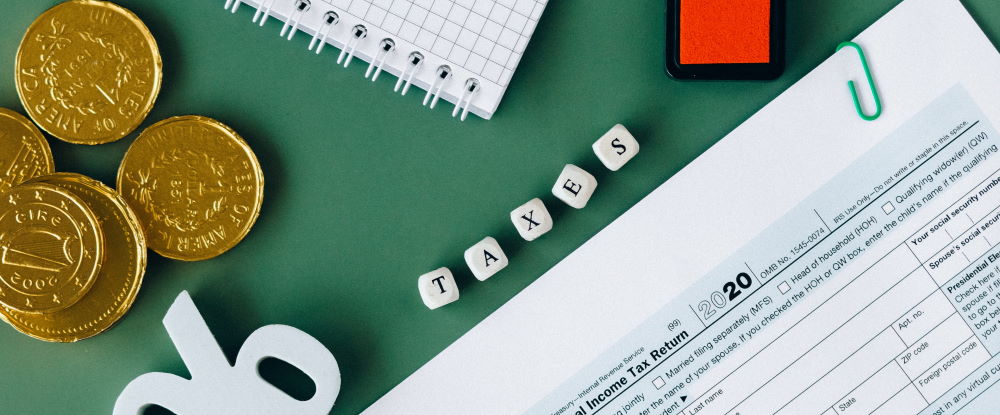Property tax investments are a great way to invest in real estate and diversify your portfolio. When you buy a property with delinquent taxes, you become the ‘collector’ and stand to make a decent profit, especially if the taxes remain unpaid for a long time.
Here’s how to find out if taxes are owed on a property and how to make a profit on them if that turns out to be the case.
Steps to Find Out If Taxes Are Owed on a Property
To find out if taxes are owed on a property, you’ll need two key pieces of information.
- The county the property is located in
- The property’s parcel number
If you don’t know the parcel number, you may also be able to search by address. You’ll know when you look at the county treasurer’s website.
Next, head to the county treasurer’s website and enter the information you have. It should pull up the listing for the parcel you requested.
You’ll see the property address, owner’s names, property legal description, and the tax payment history. In the history, you’ll see if all property taxes are up to date or if the owner is behind on certain taxes.
What Is a Delinquent Property?
A delinquent property is a property with unpaid property taxes. Each county differs in how past due taxes must be before they consider them delinquent, but most counties have a tax sale yearly. This means they sell the taxes to the highest bidder. The investor buys the tax debt from the county and then becomes the collector for the taxes. The investor has the right to foreclose on the property for the amount of the tax lien plus interest.
What Is Property Tax Liens Investing?
If you’re looking to invest in real estate but don’t want to own the physical property, tax lien investing could be a good option. It’s different than investing in the stock market, but it can provide some healthy returns. Finding property tax liens can be just as much work as finding a cheap house to flip, but with the right steps, the profits are there for the taking.
Here’s how the process works:
- The county creates a tax lien certificate when a homeowner becomes delinquent on his/her property taxes.
- The county puts the tax certificate up for auction (this is legal in 28 states). The county auctions off the tax lien certificates to the highest bidder. The winner pays the county and becomes the owner of the tax lien certificate.
- The auction may be a cash offer auction or an interest rate offer auction. A cash offer auction is like a traditional auction. The winner is the highest bidder. If it’s an interest rate auction, the investor bidding the lowest interest rate wins. Keep in mind, though, the lower the interest rate you bid, the lower your profit.
- The investor becomes the owner of the certificate and has the right to foreclose on the property and/or claim rights to the funds when the owner pays the taxes.
- The homeowner has a redemption period in which he/she must pay the taxes or work out a payment arrangement with the investor. If the homeowner pays the debt right away, the investor walks away with a profit, and the investment is over.
- If the homeowner doesn’t pay it, you can initiate the foreclosure process, but typically homeowners redeem their taxes, giving you a small profit without the headache of a foreclosure.
How To Find Tax Delinquent Properties in Your Area
Since property tax records are public record, it’s easy to find tax delinquent properties in your area. It takes a little legwork, but with the right steps, you can make a good investment investing in property tax liens.
Some local tax assessors have a list ready of properties with delinquent taxes. If this is the case, figure out where you want to invest and call the county assessor and ask for a list. Sometimes it costs money and other times it’s free. Even if it costs you a little money, think of it as an investment and include it in your calculations when you decide if investing in tax liens is the right choice.
Once you have the list of delinquent properties, you can choose which owners you want to call on to offer your services in helping them get out of their tax delinquency.
When you invest in delinquent taxes, you can charge interest for your services, much like a collection agency charges fees when they take possession of delinquent debt. Your goal in helping homeowners is to help them avoid foreclosure. If they don’t come clean with their tax debt with the county, they could end up in foreclosure for tax delinquency.
You could also go the tax lien auction route, but that is more competitive and typically offers lower returns. When there are multiple investors in the mix, the bidding gets high and the profits low. The more you pay for the delinquent taxes, the less profit you’ll make when you get the homeowner to pay the debt.
Final Thoughts
If you are looking to make money in real estate, but want a different way to go about it, think about investing in diluent tax liens or undervalued real estate. Both options offer an opportunity to make money on real estate when others can’t keep up with their obligations.
Make sure you look at the big picture no matter which option you choose. Know the costs, understand the risks, and look at the profits with your eyes wide open so you can make the choice that provides the returns you need.

